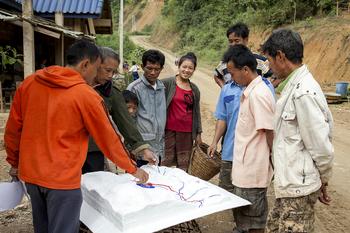Context
The livelihoods of large parts of the world’s population depend directly on access to land. However, many landowners and users possess only informal or traditional land rights, which are not sufficiently recognised. Competition and conflicts relating to land are symptomatic of the increasing pressure on land resources. For example, a lack of protective measures and planning transparency, combined with inadequate conflict resolution for large-scale agricultural investments, often leads to conflict, forced expropriation and displacement.
Objective
Access to land has improved for specific population groups, particularly women and marginalised groups, in selected partner countries.


